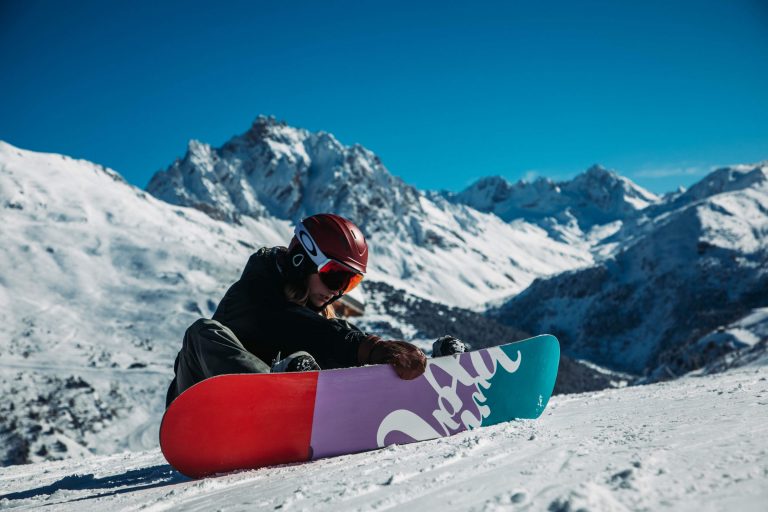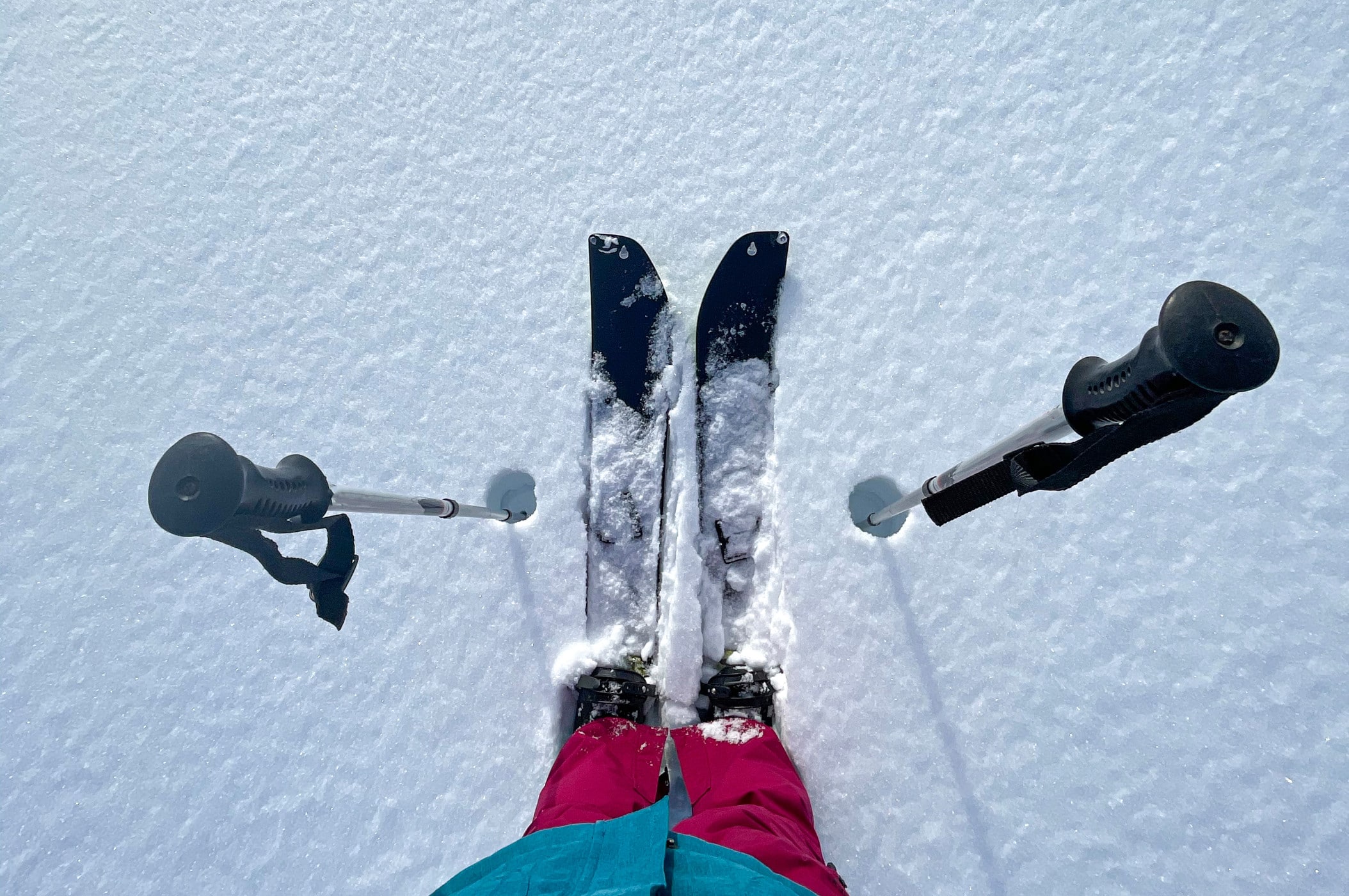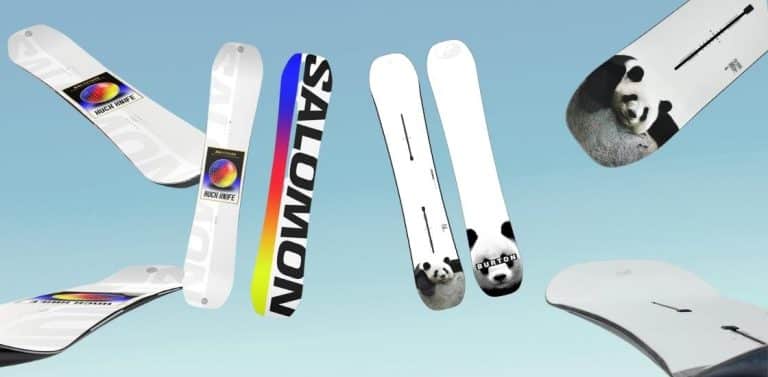Snowboard boots get put through a lot of abuse! They are constantly being bent and flexed when you are riding. Plus, they have to put up with the wet and cold conditions found on the mountain. As a result, they gradually break down and lose their performance.
I usually change my boots after each season. But I am up the mountain at least 3 or 4 times a week throughout the 5 month season. So that would be about 75 days of riding until my boots are toast.
I have compared my experience with my friends who ride varying amounts and at different levels and come up with a number:
On average, a pair of snowboard boots will last between 70 to 100 days riding before you should think about replacing them.
This is a ballpark figure, and some riders will decide their boots are done while others will keep riding them for weeks. Some factors that will affect how quick your boots ware out include:¨
- How hard you ride. If you work your board harder in turns and with tricks, then it follows that you will also work your boots harder.
- How heavy you are. Heavier riders will flex and bend their boots more with each turn, wearing out the boot quicker.
- How well you look after them.
How to know when is it time to replace your boots?
The more you use your boots, the more they ware down. But because your boots deteriorate gradually, it can be hard to identify the point at which they are no longer doing a good job and need replacing.
These are the things you should be looking out for:
Is the boot holding your foot?
For me, this is the biggest factor and the main reason I will replace a pair of boots.
Over time, boots pack out and lose their stiffness. This causes your foot to move around in your boot, and you will have to do your boots up more and more tight to get the same hold and performance.
This is bad because the extra movement going on inside your boot means you are less able to control your board.
Are your boots starting to let in water?
This is one of the most noticeable signs that it's time to get some new boots! Unless it's super warm and slushy or raining, your feet shouldn't be wet when snowboarding.
On an average winter day, you should be able to ride all day and still have dry feet. Your boots letting in water will cause your feet to get cold and generally feel pretty uncomfortable.
Are there signs of wear?
Before each snowboard trip, it's a good idea to quickly check your equipment is working and has no signs of damage. For your boots, things to look out for are:
- The sole coming away at the heel or toe.
- The laces starting to fray
- Check the Boa dial is working properly.
- Creasing in the boot outer
- Your foot moving around inside the boot
Some of these are easily fixable, allowing you to get a few more weeks riding out of your boots. For example, you can pick a pair of replacement snowboard boot laces for a few bucks.
You can also get a few more weeks out of your boots by sticking the sole back together with some Shoe Goo.
If your foot is moving around too much, you can try adding back in some more cushioning with Jbars or replacing the insole.
How to make your boots last longer.
Try not to walk around in them.
By using your snowboard boots just for snowboarding, you can prolong their life significantly. Snowboard boots are comfy enough to spend all day in, but try to make sure you change out of your boots as soon as you get off the hill.
Don't over-tighten them.
If you've switched from an old pair of boots to a brand new pair, they can feel a little stiff. You can keep the lacing on the outer boot quite loose for a few days until they start to soften.
By over-tightening them, you are just accelerating them, breaking their flex. Plus, they will feel restricting and over-responsive.
Dry them out at night.
Even if your boots don't feel wet, they will have some moisture inside them. This can either come from sweat from your foot or from water seeping through from the outside. Drying them out thoroughly overnight will help maintain the integrity of the inner boot and stop it from smelling.
Stiffer boots last longer.
A stiffer boot will have a longer life before it becomes too soft to use. If you don't like stiff boots, you can buy a little stiffer than usual but leave the laces a little loser until they soften up.
Buy more expensive!
More expensive boots are made from higher-grade materials and have more features that make them tougher.
For example, the Burton Ion has a toughened Backstay that runs up the back of the boot to increase support and durability.
Newer boots are better.
Another good reason to replace your old boots is that newer boots are better! Technology is always improving, and recent innovations have made a big difference in the performance of snowboard boots.
When choosing a boot, you now have a choice of different types of the lacing system, such as Boa and speed-lacing. These give your foot a much better hold than traditional lacing.
New boots are also lighter, warmer, and more waterproof than boots from 10+ years ago.




